While we won’t know how it ends until tonight’s pivotal season finale, it feels safe to say that Black Lightning’s third season has been a game changer. Rocketing the series from a street level look at fighting for social justice to a season-long battle against government oppressors and foreign invaders—to say nothing about the changes brought about by this season’s “Crisis on Infinite Earths” crossover—the past fifteen episodes have seen the heroes of Freeland level up in a way no one anticipated.
We’ve also seen Freeland’s systemic destruction hit painfully close to home for the Pierces, in Jennifer’s use as an ASA pawn and particularly in Lynn’s addiction to Green Light. Refreshingly, and unsurprisingly after Black Lightning’s unflinching first two seasons, these issues have played out with complexity and at times brutal honesty. There are no easy fixes in this particular part of the Arrowverse.
Through it all, Cress Williams has anchored the series with a powerful balance of intelligence, compassion and fury that manages to be even more electrifying than the bolts of blue lightning he wields. But tonight, he faces his most serious opponent to date—Wayne Brady’s Gravedigger, a seemingly undefeatable metahuman who is unrivaled in hand-to-hand combat and possesses the ability to compel people to do his will. Black Lightning may walk away victorious, but we suspect it may come with a heavy price.
Last fall, we spoke with Williams at the start of the season about what lay ahead. Now, as the season reaches its end, we thought it would be fun to hear from him again, this time looking back at a stretch of episodes that may very well be the series’ best.
Note: The below interview has been edited for clarity.
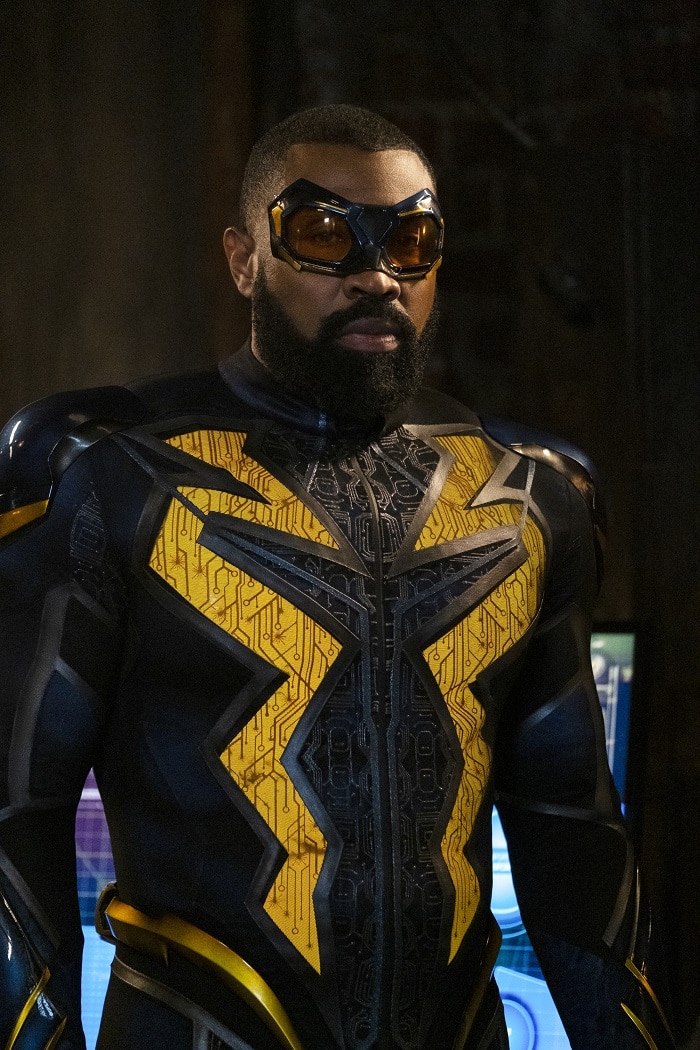
So, were you happy to finally get a new suit this season? How does the new one compare to the previous?
It’s amazing. This suit is so much more comfortable. I’ve been in it a lot this season, both on set and in Vancouver. What I’ve been doing and how much I’ve been in it couldn’t have happened in the old suit. I don’t think I could really sit with the old suit.
Didn’t you say at one point it took you an hour to get into your previous suit?
Originally it was. We eventually got it down to about twenty minutes. This one takes about fifteen minutes. But the old suit was about sixty pounds. I don’t know what this one weighs exactly, but it’s way lighter. There’s no restriction with my movement—I can touch my toes and pick things up.
How do you approach playing Jefferson now that there’s so much more at stake, both in Freeland and as a part of this bigger universe?
Well, Jefferson’s changing. He’s angrier and I think he has the right to be. Going from season one, the school was successful, his daughters were safe, and then you progress to Jefferson being locked up for over a month and then coming out to an occupation. Nobody’s safe. He’s tried to do things the right way and play by the rules, and he sees the repercussions of that. So, he’s angry.
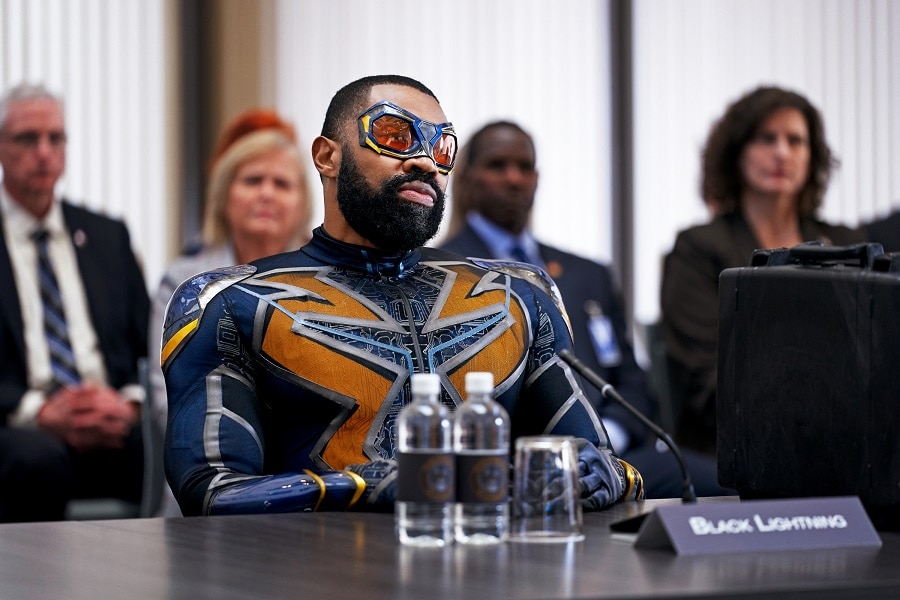
Black Lightning has always been willing to lean into parallels or use imagery drawn from current events. This year, you had green light kids being put into cages. What does Jefferson feel when he sees that?
This is not always the case, but Jefferson and Cress feel exactly the same thing—outrage. Way back when I read the first script, I identified with Jefferson as a family man. In a lot of the scenes that have to do with the daughters and the family, I picture my own daughter and my family. So, I’m outraged, and I think we all wish that we can have powers. There would be a lot of hurt people if I had some powers. I guess there’s a reason I don’t.
It seems like things have evolved between Jefferson and Anissa. How does he feel about her approach to fighting the occupation and the criminals of Freeland?
He hates it! I mean, let’s just be real. Everything Anissa’s doing—she’s got this incredibly phat crib. You know how it came about. Those are all things that Jefferson can’t abide. But what happens on our show, there’s so much going on that there’s not a lot of time to stop and reflect. He’s immediately thrust into this whole occupation and there’s just conflict after conflict. They work together. He utilizes her, and you just kind of hit the ground running. But if he had time to really sit at the dinner table with her, there would be a discussion.
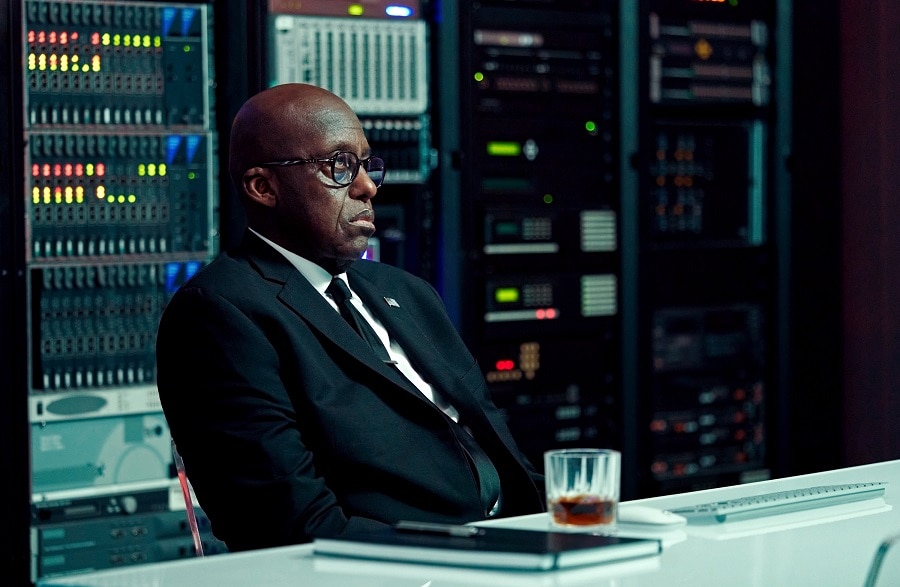
For the past two seasons, you’ve had the chance to work with Bill Duke as Agent Odell. Over the course of the show, you’ve also worked with Antonio Fargas, and of course Robert Townsend has been on camera and behind it. What has it been like working with so many legendary black actors?
It’s really cool because I love conversations. I’m a bit of an old soul. From my work ethic to my training, all of it is kind of old school. With Robert, we always talk about theater. With Bill, we talk about the writing. Bill loves to go off into politics and all sorts of things. I just love having them on set and getting to rap with people that I feel like I really connect with from that old school mentality.
So, going forward, what can we expect from the Pierces’ life after Crisis?
It’s a new normal. In our reality, we were the heroes and the big, infamous superheroes were just in comic books. That’s different now.
Would you want to be in another crossover?
I want to be a part of it again, but also, I want the other characters to come play with us. I know they talked about it. Everyone who was there was like, “I want to come to Atlanta!” I’m like, “Yes, come to Atlanta!” I’m open to all that stuff happening.
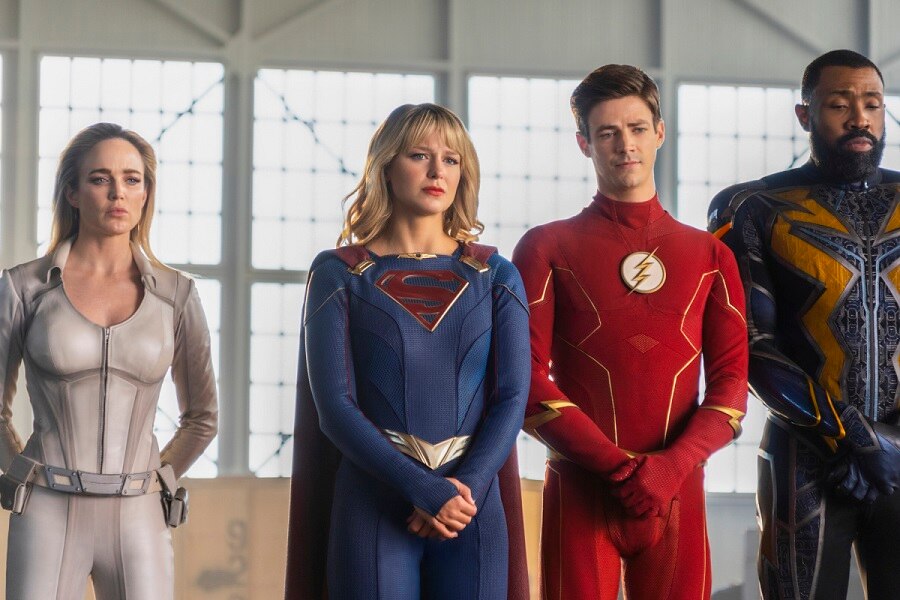
Was it cool finally standing alongside the rest of your fellow CW superheroes?
It was awesome. It was just massive. The number of superheroes was just massive. You had these out-of-body moments, not while you were acting, but in between shots when you’d look around and everybody’s in some sort of costume and you’re just like, “This is weird, man.” Everybody’s in capes and tights, and you’re just thinking about how bizarre it all is.
But all in all, it was great. They welcomed me with open arms, and I had a blast.
What was your favorite scene to shoot this season?
What stands out to me, just because it was totally different, is the scene that I did in Vancouver with Grant. You’re working with a new person and in a new environment. Grant and I, just behind the scenes, really discovered that we have a lot of the same sensibilities when it comes to the work. They wrote a scene that was really just a good person-to-person scene. It went by so fast, but it was really fun to do.
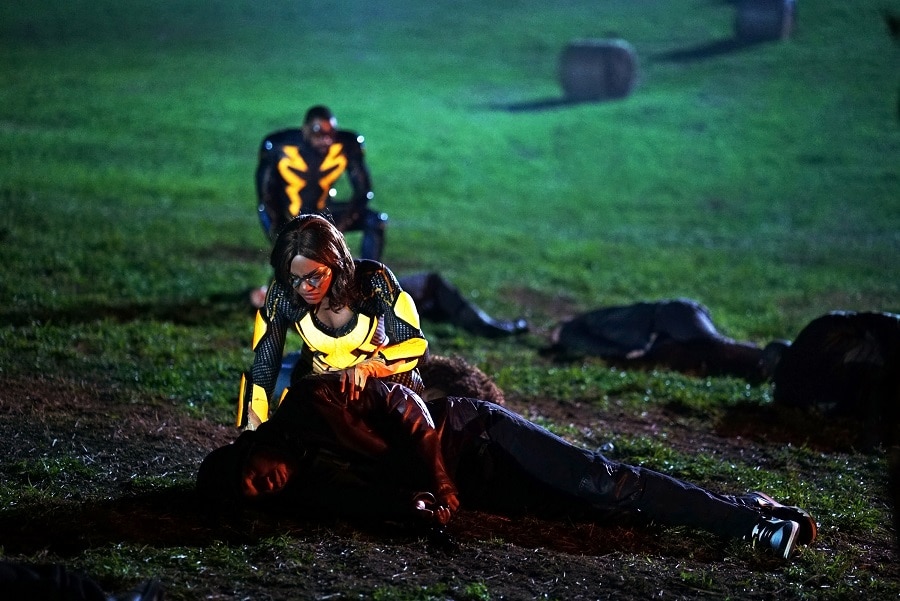
Christine Adams said in an interview that she doesn’t think Freeland will ever return back to normal after the occupation. She doesn’t think there’s a road back. Do you think Jefferson would disagree with that?
Of course. Not only Jefferson, but Cress disagrees with that. (laughs)
When you say “back to normal,” Freeland was never an idealistic place. It was always flawed. There was crime. It’s why I had to originally put the suit back on in the first place. If we get back to just that, that’s still normal. I’d say we’ll definitely get back to that eventually. It’s the United States. We can’t be occupied forever, or it’s just kind of Red Dawn twenty-four seven.
So, if Freeland’s old normal wasn’t all that great anyway, is there a way for Freeland to prosper?
Yeah, I think so. Maybe I’m just an optimist. I know that we have to have conflict, obviously. But somewhere way down the line, when we’re doing the final episode, I hope we have left Freeland better than we found it. I do think this whole occupation won’t last forever, but also, I hope that we’ve cleaned up the streets. It’s not going to be perfect—it’s not going to become Mayberry. But I do hope that it’s better than when we found it. It’s going to take a while. It’ll be fun and messy and all that.
Black Lightning's season finale airs tonight at 9 p.m. (8 p.m. CST) on The CW. Visit our Black Lightning page for more features, news and articles about the Pierce family.




















